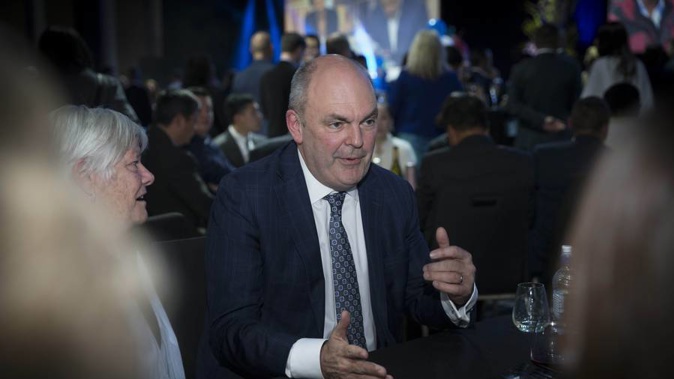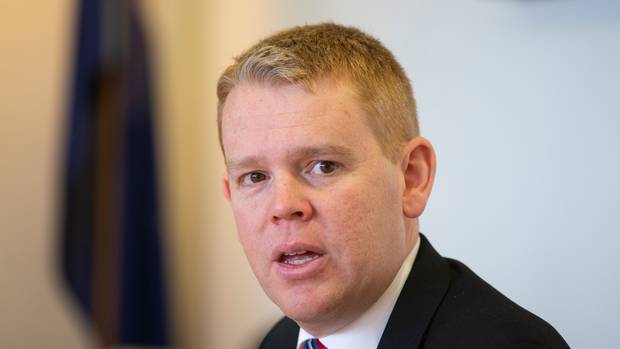
The Government's cutting of more than 1000 public sector jobs has been praised as "the right thing to do" by former finance minister Steven Joyce, as the latest inflation figures revealed non-tradeable inflation has barely budged.
Meanwhile, the Opposition has called the large number of cuts unnecessary and instead demanded that revenue be saved through taking the incoming tax cuts off the table.
New Zealand’s consumer price index increased 4 per cent in the 12 months to the March 2024 quarter, according to figures released by Stats NZ on Wednesday. The 4 per cent increase is down on a 4.7 per cent increase in the 12 months to the December 2023 quarter.
While tradeable inflation brought positive news, non-tradeable inflation now sits at 5.8 per cent in the 12 months to the March 2024 quarter, compared with 5.9 per cent in the 12 months to the December 2023 quarter. This was driven by facts such as rent, construction of new houses, and cigarettes and tobacco.
Former National MP Joyce spoke on Newstalk ZB this morning, saying people shouldn't be trumpeting the inflation figures given the fact that the non-tradeable stat had barely shifted in the past three months.
"So, the good news is definitely that tradeable inflation is down and you've got to take it, but the bad news is non-tradeable inflation is too high - it's nearly 6 per cent and it didn't move down much, so it's pretty much what it was last quarter," he told Mike Hosking.
"So that's troubling for the Reserve Bank and frankly it's troubling for the economy. And I think clearly now, people sort-of whisper it, but it's stagflation."
Joyce said the country was in a "difficult spot" economically and there was plenty of evidence of people hurting from the effects. He said while unemployment numbers aren't showing up in the headlines yet, there was plenty of evidence across regional New Zealand of businesses and communities struggling.
Many would hear yesterday's inflation figures and say "oh god", according to Joyce, as it would likely mean high mortgage interest rates would continue for a while longer.

"So on the one hand, I'd say the Reserve Bank has plenty of examples of people in pain out there, but on the other hand, nobody is going to thank them if they ease off prematurely and then we end up back here six to 12 months later," he told Hosking.
"They need to get out there and say 'I think the communication has been very average' ... and say 'well it's higher than we wanted and it's going to be a bit higher for longer'."
However, while the non-tradeable numbers made for tough reading, Joyce has backed the current Government's approach to figuring out a way through the challenge.
He said the job sector cuts that have impacted agencies including Oranga Tamariki and the Ministry of Education have been important to fighting inflation figures and would play a part in the solution.
"You've got the Government - and it's tough on people - but they're doing the right thing, shrinking the public sector is important because that was very inflationary as well," he said.
"The private sector is doing what the governor wants, which is reigning itself in, but somewhere we have to start getting a growth story back into there as well. And the only way to do that is to open up to more investment and some of that investment will be offshore, some of it domestically, and that's going to take a little while."
The Ministry of Education is proposing to cut 565 jobs and Secretary of Education Iona Holsted acknowledged it was a “difficult and uncertain time” for staff and encouraged them to seek support if needed.
When questioned if specific frontline roles would be impacted, the ministry reiterated: “Our proposed changes have been designed to avoid impacts on direct services to children, teachers and principals/leaders.”
When asked this morning about the job cuts, Opposition leader Chris Hipkins told Hosking he disagreed with the suggestion the public service had been "bloated" under his former Government and stated the people losing their jobs provided valuable services to New Zealand.

He said finding the difference between frontline and backroom staff roles was difficult for the Government to determine, and if his Government was in charge there would have been "downward pressure" but not compared to "the huge chaos" under the current regime.
"From time to time, it's absolutely right that the public service looks and goes 'okay, are we doing things that are no longer required, and how do we move that resource to areas that are required'," said Hipkins.
"But I don't think you need to do that with massive thousands of job losses, I think that's something you can do periodically from time to time without having to cause the huge disruptions happening now."
He also claimed the problem with voluntary redundancy was that the people whom agencies didn't want to lose were the ones who would often take the payouts to leave.
"Even if they agree with what the Government is doing, which is not what I hear ... generally the people who take voluntary redundancy are the people who either want to retire anyway or the people who know they can get work somewhere else and they're often the people you want to keep around."
During his interview with Hosking, Hipkins was asked for his own thoughts on how to tackle non-tradeable inflation - to which he said there were a number of factors involved, but began by noting that one of the Government's biggest promises would harm the country's prospects of recovering.
He said the promised tax cuts that are expected to be revealed in the Budget next month would be counter-productive to relieving inflation pressures.
"Government stimulus in the form of more tax cuts will actually make non-tradeable worse," said Hipkins.
"Every economist in the country is telling the Government that doing tax cuts right now will make non-tradeable inflation worse, and will mean interest rates will stay higher for longer. So, I think the Government being focused on what it needs to do is important - bringing inflation down has to be part of that, tax cuts fly completely in the face of that."
Hipkins said disciplined Government spending was another part of the equation, but stood by forecasts he'd been provided which indicated inflation was dropping and the numbers were improving.
He said the forecasts suggest the country will be back to more regular inflation levels by the end of the year and also stood by the Reserve Bank's Adrian Orr, stating he'd done "a good job".
"I think some of the criticisms there have been around the monetary policy, particularly in the effects of Covid, I want to say the Reserve Bank's monetary policy for New Zealand wasn't different to the central banks around the rest of the world," said Hipkins.
"There was extra money flowing into the economies around the rest of the world and the inflationary spike as a result was an international phenomenon."
Take your Radio, Podcasts and Music with you









